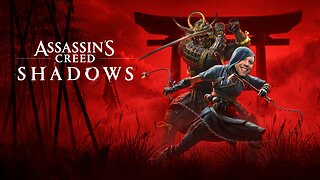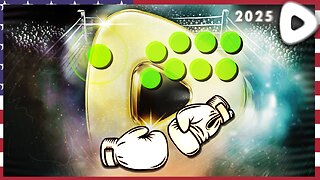Premium Only Content

Indian History 🔥🔥😈😈
Indian history is a rich tapestry woven with the threads of diverse cultures, civilizations, and events that have shaped the subcontinent over millennia. The history of India can be broadly divided into several periods, each characterized by distinct cultural, political, and social developments. Here, I'll provide an overview of Indian history up until my last knowledge update in September 2021.
Ancient India:
The history of ancient India stretches back thousands of years. The Indus Valley Civilization (circa 3300–1300 BCE) was one of the world's earliest urban cultures, known for its well-planned cities like Harappa and Mohenjo-daro. Vedic culture emerged around 1500 BCE, with sacred texts like the Rigveda being composed. This period saw the rise of various kingdoms and empires, including the Maurya (circa 322–185 BCE) and Gupta (circa 320–550 CE) empires. The Gupta period is often referred to as the "Golden Age" of India, marked by advancements in science, mathematics, literature, and art.
Medieval India:
The medieval period witnessed the rise of various dynasties and the spread of major religions. The Delhi Sultanate (1206–1526) was established by Turkish and Afghan rulers and introduced Islamic influence to India. The Mughal Empire (1526–1857) was a significant chapter, known for its architectural marvels like the Taj Mahal. This period also saw the expansion of the Maratha Empire and the rise of Sikh power in Punjab.
Colonial Era:
The arrival of European powers in India marked a turning point in its history. The Portuguese, Dutch, French, and ultimately the British East India Company established trading posts. The British gradually expanded their influence and control over the Indian subcontinent. The First War of Independence, also known as the Sepoy Mutiny of 1857, was a significant attempt by Indians to reclaim their independence from British rule. However, the British Crown assumed direct control after this event, leading to the establishment of the British Raj.
Indian Independence Movement:
The struggle for independence gained momentum in the late 19th and early 20th centuries. Leaders like Mahatma Gandhi adopted nonviolent civil disobedience as a strategy to protest British rule. The Salt March (1930) and the Quit India Movement (1942) were pivotal moments in this struggle. World War II and various international pressures eventually led the British to grant India its independence in 1947.
Modern India:
India was partitioned along religious lines into two separate nations, India and Pakistan, in 1947. This partition led to widespread violence and mass migrations. India adopted a democratic and secular constitution in 1950, becoming a republic. The country has since faced various challenges and opportunities, including economic growth, technological advancement, social changes, and geopolitical dynamics.
It's important to note that this overview only scratches the surface of India's complex and diverse history. The nation's history is characterized by a blend of cultural, linguistic, religious, and regional diversity, all of which have contributed to its rich and multifaceted heritage. For more in-depth information about specific periods or events, feel free to ask!
-
 LIVE
LIVE
BSparksGaming
55 minutes agoNear the End? Assassin's Creed Shadows Campaign
200 watching -
 1:46:34
1:46:34
Glenn Greenwald
4 hours agoThe Truth & Lies About the Atlantic's Signal Controversy; EU Already Failing to Back Up its Militaristic Rhetoric; Appeals Court Rules Against Trump DOJ in El Salvador Case | SYSTEM UPDATE #429
109K61 -
 DVR
DVR
nickelsYT
3 hours ago🔴LIVE The Finals WT Grind /Ranked.....Pew Pew
6.38K -
 LIVE
LIVE
OhHiMark1776
2 hours ago🟢 03-26-25 ||||| #RumbleFightClub ||||| Variety
97 watching -
 LIVE
LIVE
Phyxicx
4 hours agoHALO and Rocket League tonight! - 3/26/2025
141 watching -
 1:22:05
1:22:05
Donald Trump Jr.
4 hours agoBreaking News: Media’s Smoke Signal, Plus Crucial Wisconsin Special Election.Live with Sens Ron Johnson & Rick Scott | Triggered Ep228
84.6K52 -
 46:45
46:45
BonginoReport
5 hours agoCNN Kisses President Trump’s Ring - Nightly Scroll w/ Hayley (Ep.13) - 03/26/2025
125K66 -
 43:55
43:55
Sarah Westall
2 hours agoAlien Disclosure, Nephelium & the Bible, Ancient History & the End Times w/ L.A. Marzulli
29.1K9 -
 LIVE
LIVE
Melonie Mac
2 hours agoGo Boom Live Ep 42!
194 watching -
 LIVE
LIVE
MyronGainesX
20 hours ago $10.06 earnedThe Downfall Of The Daily Wire And The Future Of Conservatism...
2,234 watching